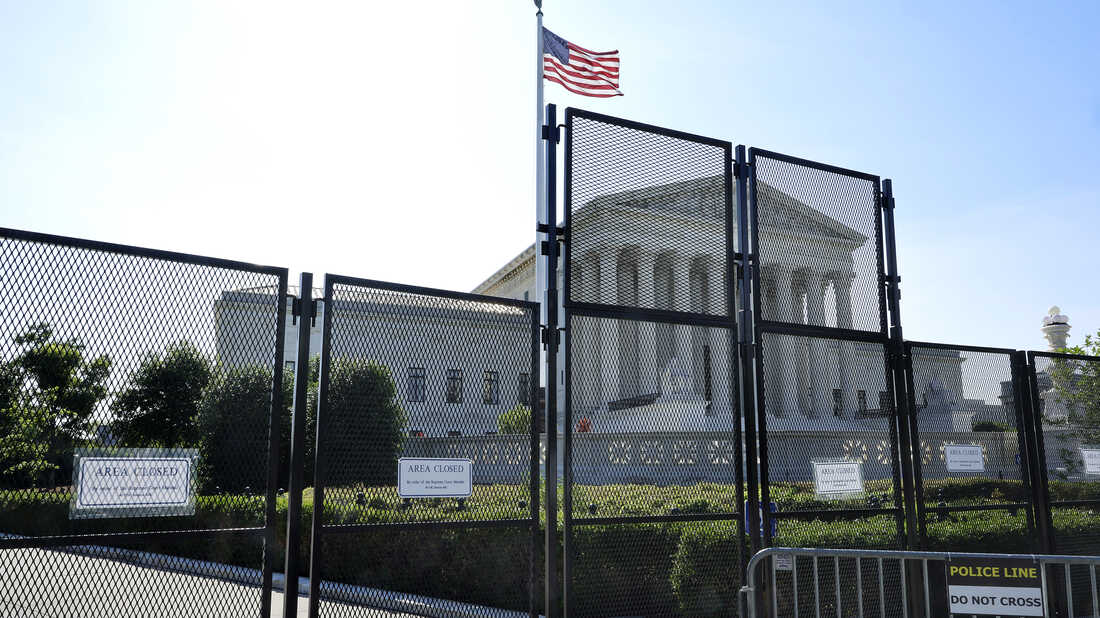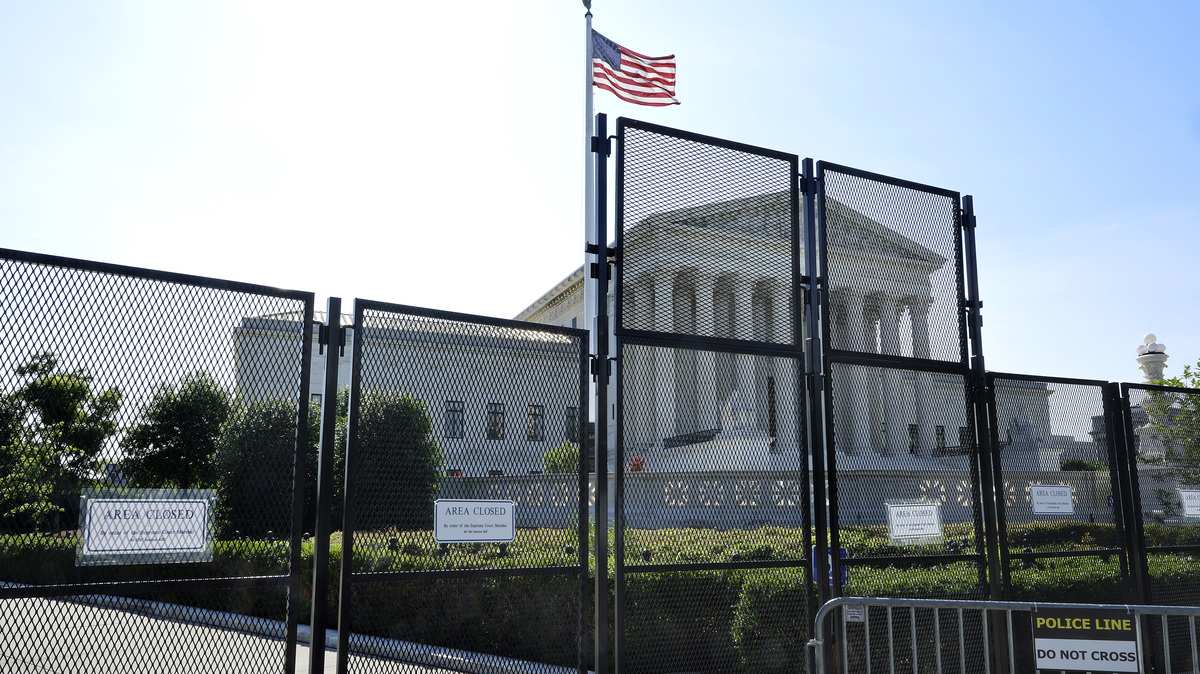
Protective fencing remains up around the U.S. Supreme Court building in anticipation of protest related to a possible overturning of the landmark Roe v. Wade abortion decision on May 23, 2022 in Washington, DC. Getty Images hide caption

Protective fencing remains up around the U.S. Supreme Court building in anticipation of protest related to a possible overturning of the landmark Roe v. Wade abortion decision on May 23, 2022 in Washington, DC.
Getty ImagesWhat happens if a medical condition threatens the life of a pregnant patient? What about a fetus with a lethal anomaly? Will treatment for miscarriage change? This episode we're answering those questions and others from listeners about what would happen if the Supreme Court overturns Roe v Wade — with help from NPR health policy correspondent Selena Simmons-Duffin and Dr. Kristyn Brandi, an OB-GYN and family planning doctor who's also the board chair for Physicians for Reproductive Health.
Email us at
This episode was produced by Brianna Scott, Jonaki Mehta, and Brent Baughman. It was edited by Carrie Feibel, Ashley Brown, and Sami Yenigun. Our executive producer is Cara Tallo.

 Live Radio
Live Radio